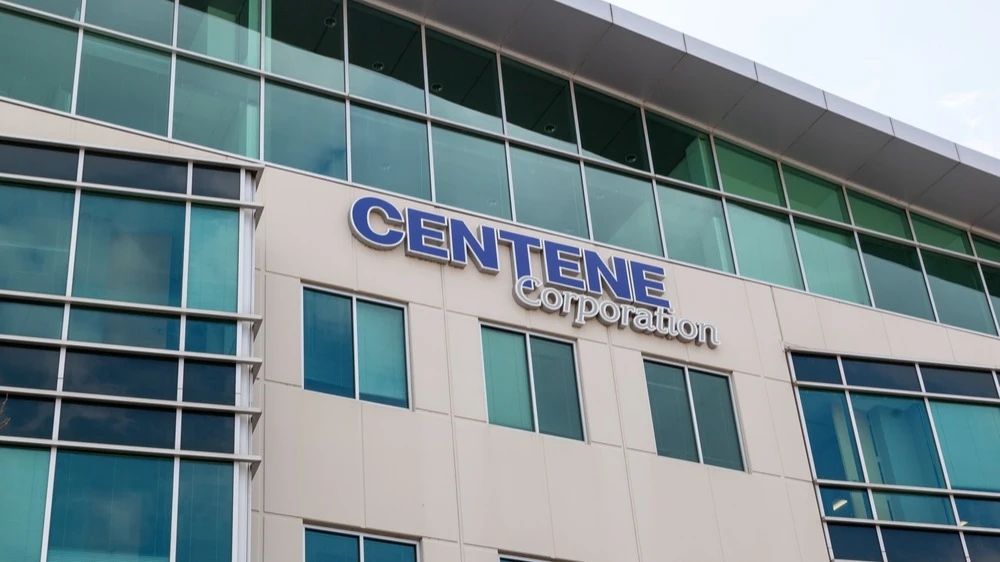Centene collapsed 40% and crashed stocks in the health insurance sector. Should we buy on a downturn?
JPMorgan and UBS downgraded Centene's investment rating, but there are optimists

Shares of Centene, a major US insurer working with the government's Medicaid and Obamacare programs, fell sharply after the unexpected withdrawal of its annual forecast. This caused a collapse in quotes across the sector. Wall Street's biggest bank JPMorgan and Switzerland's biggest bank UBS dropped their recommendation to buy Centene shares. But there are still those who still find them attractive.
Details
Centene shares collapsed 40% in recent trading in New York, to their lowest since 2017. The reason was an unexpected rise in patient costs that violated the company's internal forecasts and forced it to withdraw its financial guidance for the year. Centene said it faced increased Medicaid costs related to mental health care, home care and high-cost drugs. Costs for Obamacare insurance plans were also "significantly higher" than the company's original assumptions, the Financial Times reported.
Centene's announcement put pressure on the entire health insurance sector as investors began selling shares out of concern that Centene's problem could be systemic. The securities of Centene's direct competitors - Oscar Health and Elevance Health, which also work with affordable insurance plans Obamacare - fell in price by 15% and 8% respectively. Quotes of the largest insurers - UnitedHealth, Humana and Cigna - went down by 2-3%.
This is the second time in 2025 that a major US insurer has lost guidance due to calculation errors, the FT notes. In May, UnitedHealth withdrew its forecast and replaced its CEO after it admitted underestimating medical costs.
Context
The Affordable Care Act, or Obamacare, passed in 2010, created insurance exchanges for those who don't get insurance from an employer or through government programs. In 2016, however, the big insurers - Aetna, Humana and UnitedHealth - pulled out of some of these exchanges: the insurance pools had too many sick customers and too few young and healthy ones for the business to be profitable.
That changed in 2021, when the Joe Biden administration introduced additional subsidies for insurance premiums. That gave Centene's Obamacare segment a strong boost in recent years, writes the FT, citing a March 2025 report published by S&P.
What investors should do
CNBC exchange columnist and founder of TheStreet.com Jim Cramer stated that "at the current stage, the entire managed health insurance sector is virtually uninvestable." "Unfortunately, before things get better, things are only going to get worse in this sector, so I can't recommend that you buy these stocks, even though they are already down significantly," explained Cramer.
Several major banks and investment companies on Wall Street dropped their recommendation to buy shares of Centene. In particular, JPMorgan reduced Centene's investment rating from "above market" (Overweight, equivalent to "buy") to "neutral" (Neutral, equivalent to "hold"), and the target price for the stock - from $75 to $48. UBS revised Centene's rating from "buy" to "neutral", while lowering its target on the stock from $80 to $45.
In turn Bank of America reduced its benchmark for Centene from $65 to $52 per share while maintaining a Neutral rating on the stock. Jefferies lowered its target price on Centene shares from $61 to $47 and maintained a Hold rating on the stock.
However, there are those who advise buying the cheapened shares. TD Cowen reiterated a Buy recommendation on Centene shares and maintained a $73 target price despite the insurer revoking its full-year outlook. Truist Securities maintained a Buy rating on Centene shares and a $84 per share price target.
Consensus rating of FactSet saved at the level "above the market" (Overweight, corresponds to recommendation to buy shares). The average target on Centene shares calculated by the service at $68.06 per share implies their growth twice from the level at the close of trading on July 2.
This article was AI-translated and verified by a human editor
